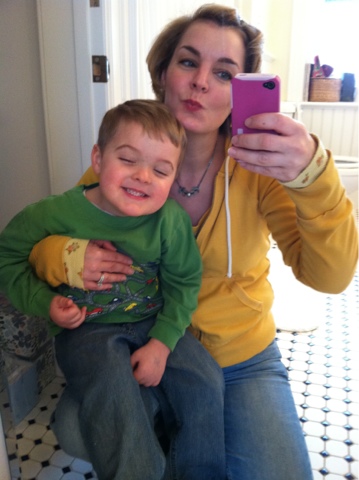If you've read my blog, you probably know that I am a psychologist. I work part-time in my own private practice where I treat a number of parents. I love to work with parents, especially new parents who are raising young children. This group needs a lot of support, and I have always felt that our society does very little for them. Of course, I'm a new(ish) parent myself, so I typically relate to their struggles. Many of the parents I treat in my practice had very difficult childhoods, where they were typically neglected, demeaned, hit, rejected, abused, and/or made into their parents caretakers. These patients often struggle to rewrite the family script--their goal is often to
not do to their children what was
done to them. I cannot tell you how much I admire them for their willingness to look realistically at their own stories in order to change the psychological family trajectory. (And, let me tell you, they are
doing it, and their children are
thriving.)
I just read a recently-published book by the late Elisabeth Young-Breuhl called "Childism: Confronting Prejudice against Children." Dr. Young-Breuhl was a psychoanalyst and political scientist with an expertise in prejudice. This combination of careers allowed her to look at her patients through a unique lens--one that simultaneously saw individual psychology and cultural influences (i.e., prejudice).
Let me tell you, this is a heartbreaking book. It is heartbreaking (to me, anyhow) because it captures a deep truth.
Here is a crude summary of what Childism says:
~We live in a culture that historically has not valued children as individuals with the right to be respected and taught.
~We have viewed children as our property, to be treated as we like.
~Many of us have wanted children to meet our own needs, rather than recognizing that children's needs must always come first.
~We, as a society, allow parents to hit their children, in the name of
discipline. (If you hit an adult, you can be charged with assault. If you hit a child, we call it "spanking" and say it's for their own good.)
~We have established social systems for "child protection" which further traumatize children who have often already suffered horrible traumas.
The bottom line is this: we don't help parents to help their children. We don't, as a society, openly acknowledge how hard, stressful, frustrating, relentless, and intense it is to raise a child. We don't offer needed support to young families. We allow severe economic disparities to exist, putting tremendous stress and strain on large portions of our population. And when this population has children, we do not step in to help relieve the pressure of parenting under dire conditions. Then, when the children of these over-stressed parents (who often have untreated trauma histories of their own) start to act-out, we medicate or incarcerate them. We cut spending on education and early intervention, but some states will spend as much as $200,000 per year per child to jail children.
Young-Breuhl argues convincingly that we have to stop this shit.
We have to start looking at the cost to our society of
not valuing our children. We have historically been so self-absorbed that we haven't see beyond our own generations. We have not looked
ahead. We have only looked at
now. And this short-sightedness has taken us in the wrong direction. And our kids pay for it. And if things don't change,
their kids will pay for it, too.
For the sake of contrast, take a look at a couple of policies in Sweden:
~Parents get a total of 13 months of paid maternity leave and the father is required to take at least 1 month of it. (There has been a discussion about changing this to 15 months and requiring the father and mother to each take 5 and then split the last 5 as they feel appropriate.)
~Parental leave can be used to take off time for parenting classes before your child is born.
~Parents can save up their maternity leave for more than 5 years (i.e., use it for doctor's appointments, school visit days, etc.).
~Daycare cost is based on your family income with a government imposed maximum. (Currently about 1/10th as much as in the U.S.!)
~If you have a new child, your other children get a month of free daycare so you can concentrate on the new one.
~Sweden has
outlawed spanking, and has implemented other forms of non-violent discipline (for the greater good of their society).
I know that these ideas may not apply to you. Certainly, we are all unique individuals with a wide range of values, principles, and histories. But I encourage you to read this book, to recognize and tolerate its truths, and to work hard to change our national attitude toward children.
And if this is all too depressing, check out
The Irreducible Needs of Children by Greenspan and Brazelton instead. Maybe I'll write about that book next.




